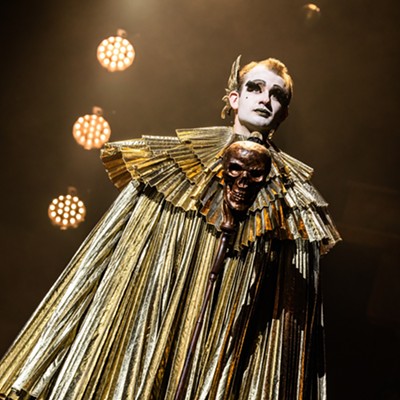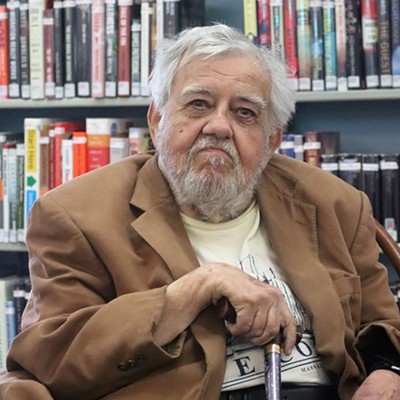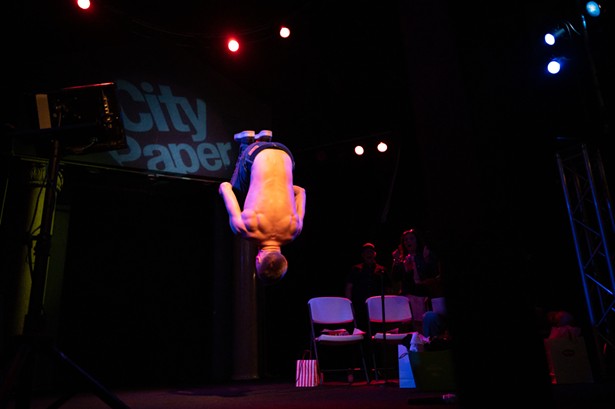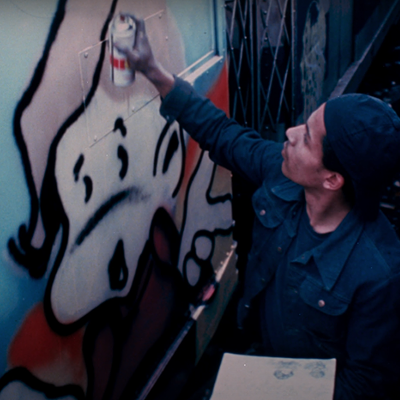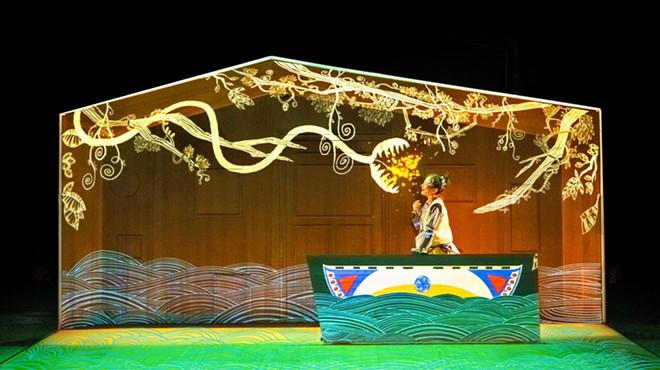How a podcast, a fear of flying, and a plantation museum influenced Jesmyn Ward's latest novel Let Us Descend
Jesmyn Ward thought she was prepared when starting to write her latest novel, Let Us Descend (Scribner). The story of a young enslaved woman who navigates a daunting trip from the Carolinas to New Orleans – on foot, no less, while being driven by cruel slave traders – Ward knew the material was going to test her resolve.
Ward, who appears Mon., May 13 as a guest of the Pittsburgh Arts & Lectures Ten Evenings series, admits she underestimated the effect of the book’s subject matter.
“I didn’t have a clear idea of what it would be like just sitting there with that uncomfortable truth, and living it,” Ward tells Pittsburgh City Paper,” immersing myself in it with the character, day in, day out. I think it was more difficult than I thought, and it meant that, during the time I wasn’t sitting in front of my computer, where I wasn’t working, I just disengaged. I watched a lot of TV and did a lot of light reading that didn’t ask me to engage in any way, or struggle.”
Ward, who has twice won National Book Awards for fiction, in 2011 for Salvage the Bones and 2017 for Sing, Unburied, Sing, paints a vivid, horrific portrait of a slave’s existence. When Annis, a mixed-race slave, is sold by her owner in the Carolinas, she’s torn from the meager comforts of her life and forced on a brutal journey.
Throughout the novel, Ward takes great care to name Annis and her fellow slaves, including Aza, Safi, Phyllis, and Mary. But the white characters in the book are designated as the Georgia Man, my sire, the lady, or the blind mother.
Ward notes several plantations in southeastern Louisiana within hailing distance of her Mississippi home. Notably, the historic Whitney Plantation in Wallace, La. was transformed into a museum and is constructed and curated to reflect the experience of the enslaved.
Ward wanted to ensure that the Black characters in Let Us Descend, like those commemorated at the Whitney, are remembered.
“It was a contentious thing down here,” Ward says of the Whitney’s direction. “People didn’t like the person who decided to develop the plantation in that way. … And I was thinking about that, how down here in the South so much conversation that we have around these places is sanitized and the experiences of the enslaved are erased.
“By specifically naming all the enslaved people and then not naming the people who enslaved them, I felt like that was sort of an easy way for me to center the enslaved experience.”
The idea for the book came after Ward listened to an episode of the NPR podcast TriPod: New Orleans at 300 about pens where enslaved people were processed and sold. It struck the author that out of the dozens of slave pens that once existed in New Orleans, only two had historical markers, and one was in the wrong place.
“My reaction to hearing that was I can’t believe all those people who endured that process and who endured slavery and who endured being caged in those slave pens, they’ve been erased,” Ward says. “That was one of my first motivations for writing the book: what if I wrote these people back into being, or at least into the imagination?”
Throughout the novel, the idea of descent implied in the title is emphasized by references to Dante’s Inferno. When Annis was enslaved in the Carolinas, she overheard snippets of the work being taught to white children and refers to the author as “the Italian.”
Ward says the title also draws from her experiences driving from the upper South to the lower South, North Carolina to South Carolina, and then down to Mississippi – long car trips taken due to the author's fear of flying.
“I was thinking about that journey, and I realized geographically it seems like a descent,” she says. “You’re in the mountains in Appalachia, you’re elevated, and as you go further and further south, everything flattens out and it gets lower and lower until you’re down here in Mississippi and New Orleans and you’re at sea level. That’s a kind of descent.
“And I was thinking about how the system of slavery that exists in the upper South is different in some ways that existed in the lower South. The cotton plantations in Mississippi and the sugar cane plantations in Louisiana were so brutal. It seemed like that was something like a descent into hell.”
Pittsburgh Arts & Lectures presents Jesmyn Ward. 7:30 p.m. Mon., May 13. Carnegie Music Hall. 4400 Forbes Ave., Oakland. $30-45, $18 for online access. pittsburghlectures.org
Ward, who appears Mon., May 13 as a guest of the Pittsburgh Arts & Lectures Ten Evenings series, admits she underestimated the effect of the book’s subject matter.
“I didn’t have a clear idea of what it would be like just sitting there with that uncomfortable truth, and living it,” Ward tells Pittsburgh City Paper,” immersing myself in it with the character, day in, day out. I think it was more difficult than I thought, and it meant that, during the time I wasn’t sitting in front of my computer, where I wasn’t working, I just disengaged. I watched a lot of TV and did a lot of light reading that didn’t ask me to engage in any way, or struggle.”
Ward, who has twice won National Book Awards for fiction, in 2011 for Salvage the Bones and 2017 for Sing, Unburied, Sing, paints a vivid, horrific portrait of a slave’s existence. When Annis, a mixed-race slave, is sold by her owner in the Carolinas, she’s torn from the meager comforts of her life and forced on a brutal journey.
Throughout the novel, Ward takes great care to name Annis and her fellow slaves, including Aza, Safi, Phyllis, and Mary. But the white characters in the book are designated as the Georgia Man, my sire, the lady, or the blind mother.
Ward notes several plantations in southeastern Louisiana within hailing distance of her Mississippi home. Notably, the historic Whitney Plantation in Wallace, La. was transformed into a museum and is constructed and curated to reflect the experience of the enslaved.
Ward wanted to ensure that the Black characters in Let Us Descend, like those commemorated at the Whitney, are remembered.
“It was a contentious thing down here,” Ward says of the Whitney’s direction. “People didn’t like the person who decided to develop the plantation in that way. … And I was thinking about that, how down here in the South so much conversation that we have around these places is sanitized and the experiences of the enslaved are erased.
“By specifically naming all the enslaved people and then not naming the people who enslaved them, I felt like that was sort of an easy way for me to center the enslaved experience.”
The idea for the book came after Ward listened to an episode of the NPR podcast TriPod: New Orleans at 300 about pens where enslaved people were processed and sold. It struck the author that out of the dozens of slave pens that once existed in New Orleans, only two had historical markers, and one was in the wrong place.
“My reaction to hearing that was I can’t believe all those people who endured that process and who endured slavery and who endured being caged in those slave pens, they’ve been erased,” Ward says. “That was one of my first motivations for writing the book: what if I wrote these people back into being, or at least into the imagination?”
Throughout the novel, the idea of descent implied in the title is emphasized by references to Dante’s Inferno. When Annis was enslaved in the Carolinas, she overheard snippets of the work being taught to white children and refers to the author as “the Italian.”
Ward says the title also draws from her experiences driving from the upper South to the lower South, North Carolina to South Carolina, and then down to Mississippi – long car trips taken due to the author's fear of flying.
“I was thinking about that journey, and I realized geographically it seems like a descent,” she says. “You’re in the mountains in Appalachia, you’re elevated, and as you go further and further south, everything flattens out and it gets lower and lower until you’re down here in Mississippi and New Orleans and you’re at sea level. That’s a kind of descent.
“And I was thinking about how the system of slavery that exists in the upper South is different in some ways that existed in the lower South. The cotton plantations in Mississippi and the sugar cane plantations in Louisiana were so brutal. It seemed like that was something like a descent into hell.”
Pittsburgh Arts & Lectures presents Jesmyn Ward. 7:30 p.m. Mon., May 13. Carnegie Music Hall. 4400 Forbes Ave., Oakland. $30-45, $18 for online access. pittsburghlectures.org





